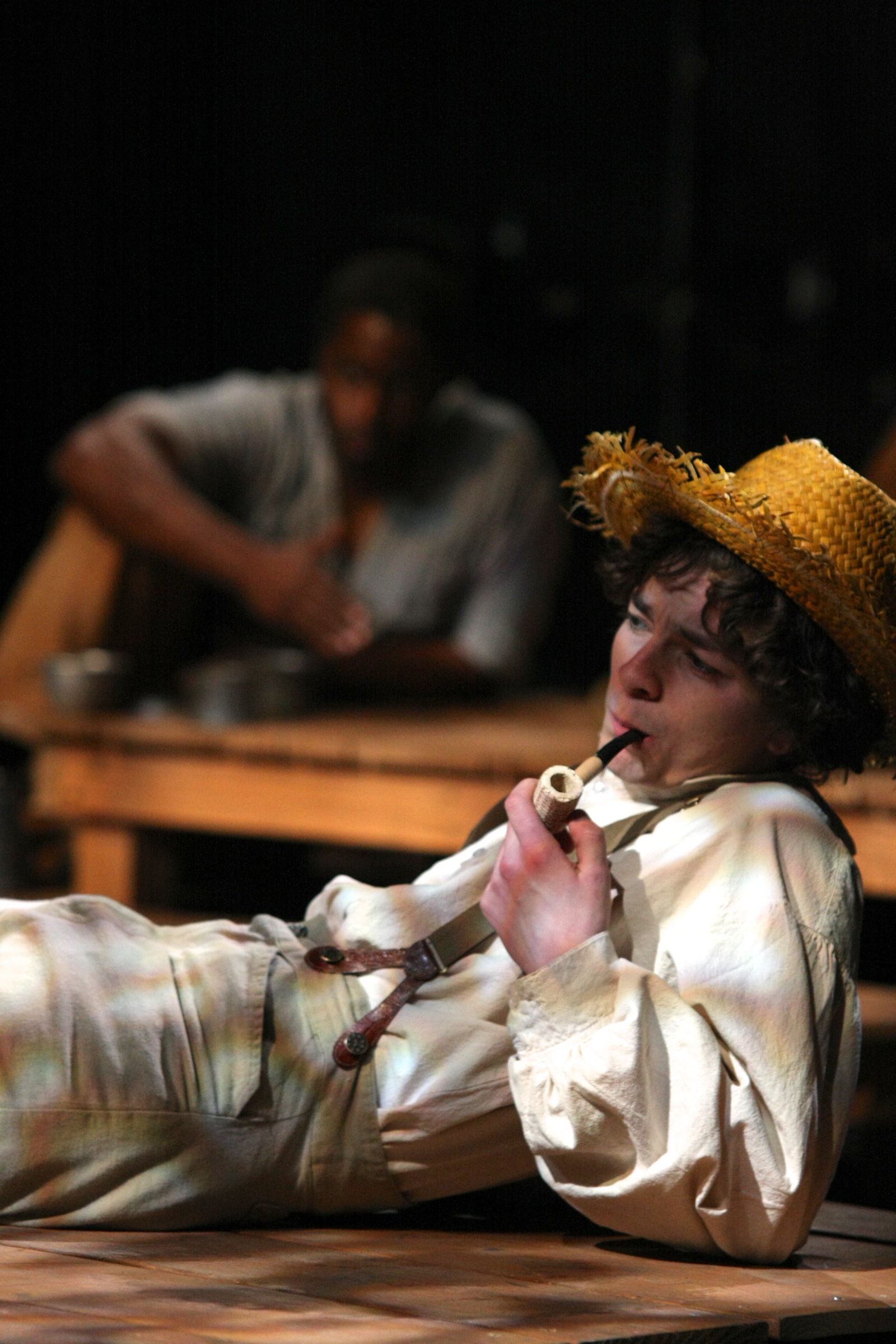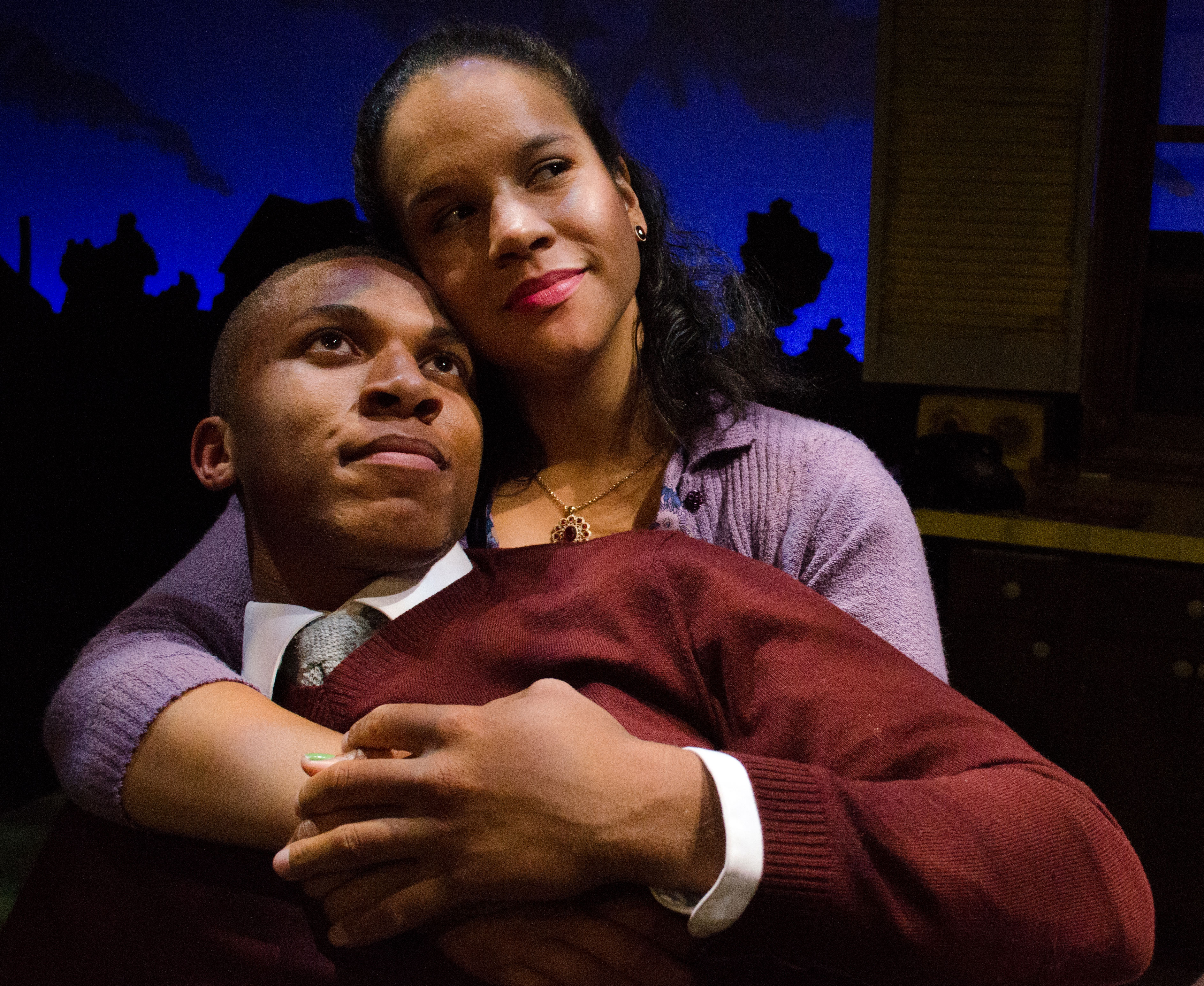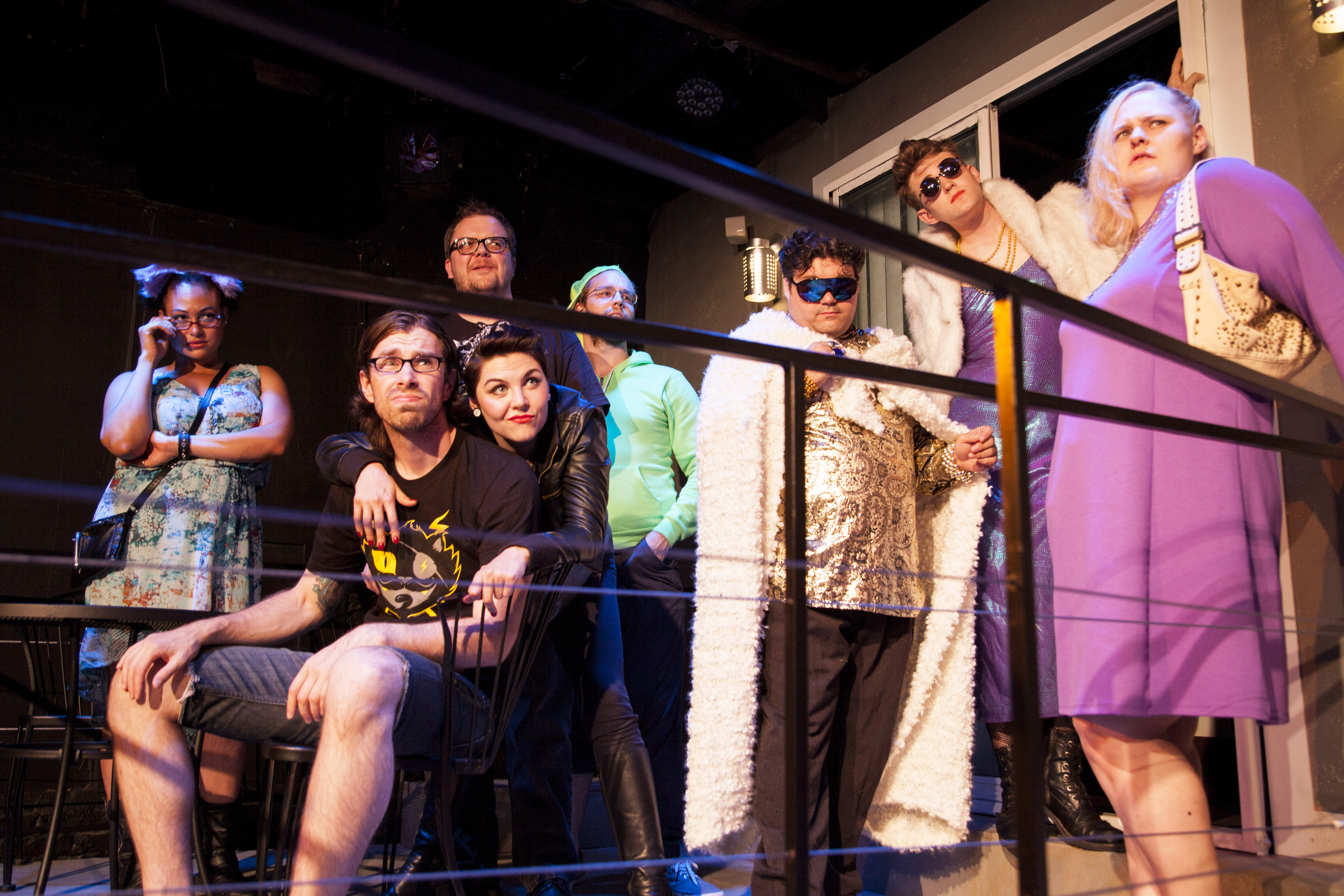“All modern American literature comes from one book by Mark Twain called Huckleberry Finn,” Ernest Hemingway famously declared, dismissing in a stroke The Last of the Mohicans and Moby-Dick, to name but two members of our national library. Today, many scholars agree: Published only 20 years after Lincoln freed the slaves, Mark Twain’s 1885 novel was both a radical departure from what had gone before and a signpost of what was to come. Combining homespun tall tales with a seething abolitionist tone, it unflinchingly depicted the life of a runaway slave, as seen through the eyes of pubescent scamp. The black man’s plight was made more palatable for white readers by using one of their own as an intermediary, a narrative template to be followed again and again.
Now comes Book-It’s “uncensored” new adaptation by Judd Parkin (Jane Jones directs), which means that the word “nigger” is restored to its poisonous place at the nucleus of the story. Does that make you uncomfortable? It should. As in fog on a moonless night rolling across the Mississippi River, you sense there’s an enormous paddle-wheeler headed right at you, but there’s no safe way to manage an escape. Nigger is a word that has lost none of its vulgar stench over the century and a half since Huckleberry Finn hit the shelves, and it’s with us still. Steamboats and slavery may be anachronisms, but racism is as contemporary as the morning news or right-wing websites.
Huck (the puckish Christopher Morson) and runaway Jim (the sublime Geoffery Simmons ) are surrounded by Twain’s vivid gallery of townsfolk and river rapscallions, many played by Gin Hammond, Peter Jacobs, and Russell Hodgkinson. Solo moments make it clear that these actors love to shine, but their primary loyalty remains to the material. Likewise, a small live musical ensemble plays popular tunes of the day, to help finesse set and scene changes.
There are edits and shortcuts in Parkin’s adaptation, but the fire in the gut of Huckleberry Finn burns more brightly for these. Director Jones makes sure that when all the talents at her command assemble, the true nature of Twain’s subversion comes into focus: Huckleberry Finn is a Trojan Horse of a fable. It’s a kiddie yarn and coming-of-age story, sure; but though Twain clearly loves the Southern folk he writes about, his novel is unmasked as a fire-breathing antiracism manifesto. Without the use of the word nigger, that effect has been blunted or lost for decades. Once it’s restored, Twain’s timeless tale becomes more timely.
I’m already well on the record about the N-word. In my book Souled American: How Black Music Transformed White Culture (a history of race relations seen through music, from 1619 to the present), I wrote that not using the term simply whitewashes history—pun intended. It does a disservice to those who fell under the lash, did work at gunpoint, and saw their children bought and sold like furniture. What happened to us as a nation and as a culture depends on remembering our history accurately, blemishes and all.
And while Adventures of Huckleberry Finn still overflows with Twain’s whimsy and humor, Book-It restores the awful truth that he believed was “the point of the whole infernal enterprise.”
stage@seattleweekly.com
ADVENTURES OF HUCKLEBERRY FINN: UNCENSORED Book-It Repertory Theatre, 305 Harrison St. (Center Theater, Seattle Center), 216-0833, book-it.org. $23–$45. Runs Wed.–Sun. Ends May 12.








